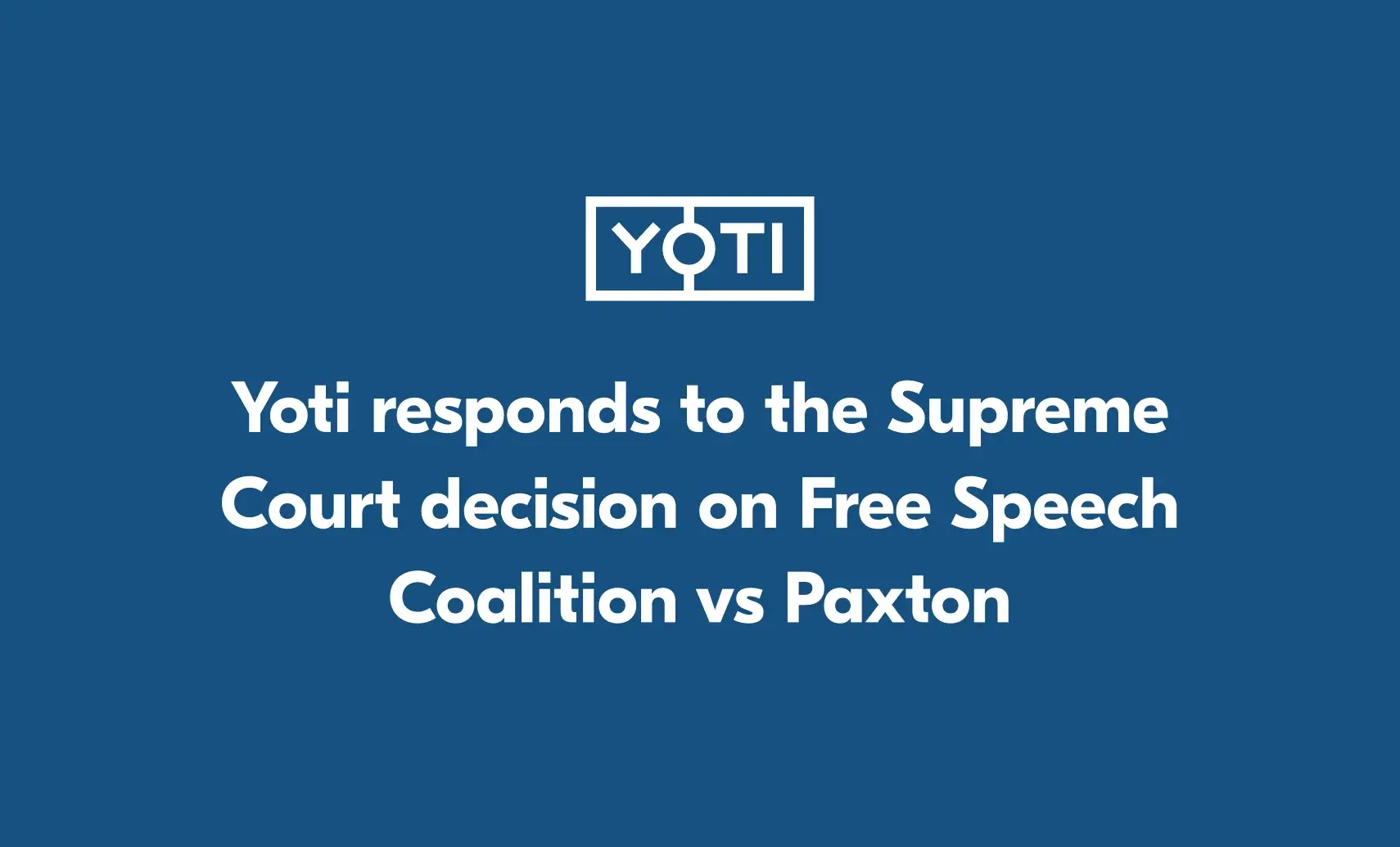
This week, the UK Government announced the creation of the new Regulatory Innovation Office – a move we welcome here at Yoti.
Bringing new tech to market is often slowed down, or even blocked, due to outdated regulations or a lack of existing bodies to help support and facilitate the introduction of the new technology or co-ordinate its joint recognition. Recognising that this is a barrier to innovation, the Government will introduce the Regulatory Innovation Office (RIO).
The Regulatory Innovation Office will sit under the Department for Science, Innovation and Technology (DSIT). It aims to help regulators facilitate economic growth by speeding up approvals and making regulation processes more efficient. By encouraging and supporting different regulators to work together, the RIO will encourage and foster innovation from businesses.
Key aims of the RIO include bringing regulators together and “working to remove obstacles and outdated regulations to the benefit of businesses and the public”.
Calling for regulatory consistency
In order to help maximise the potential of the new RIO, we advocate for regulatory consistency across the field. This would mean that once one technology is approved by any single Government department, it should be publicly recognised by other departments within a reasonable time frame (e.g. within 12 months).
We believe this would significantly reduce the time and effort required for businesses to navigate different regulatory processes and bodies, which in turn, would lead to faster innovation whilst reducing costs all round.
A challenge we face is that new initiatives are often slow to be deployed across different sectors. This is because it can often take years for each governmental department to assess and allow the same technology to be used in their particular area.
For example, digital IDs are certified under the Digital Identity and Attributes Trust Framework (DIATF) for right to work, right to rent and criminal record (DBS) checks. This has transformed the employment sector and the way people complete these important identity checks. Yet, these UK government-certified digital IDs are not publicly recognised by other regulatory agencies such as the Financial Conduct Authority (FCA) or the Gambling Commission.
Additionally, facial age estimation is recognised by Ofcom as a highly effective method for accessing age-restricted content online. It’s also supported by the Information Commissioner’s Office for the Children’s Code. However, it can’t be used for the sale of alcohol in licensed premises due to the current Mandatory Licensing Conditions, despite being successfully tested by the Home Office. Yet, the same facial age estimation technology is already being used to stop underage children from playing 18+ gaming machines in pubs and to help prevent online sales of any age-restricted goods.
The Mandatory Licensing Conditions currently prohibit the use of both UK government-certified digital IDs and facial age estimation. This is because the current law has not been written to be outcome-based, which would allow regulation that supports new technology to be used if proven to be effective. Instead, the law requires a specific technology solution to be used – in this case, a person checking a physical ID document with a hologram. UK supermarkets have said they would like to use facial age estimation and reusable digital IDs but they cannot do this until the law is changed.
Julie Dawson, our Chief Regulatory and Policy Officer, commented: “Regulatory consistency will create a more cohesive landscape supporting innovators and citizens alike. This in turn can drive economic growth by encouraging the development of more world-leading innovative UK businesses.”
Robin Tombs, our Chief Executive Officer, added: “Creation of the Regulatory Innovation Office is a very welcome, sensible step by the new Government. But naturally businesses will want to see evidence that the RIO performs well in meeting its important mission as this will enhance the UK’s competitive position and drive innovation and growth.”




